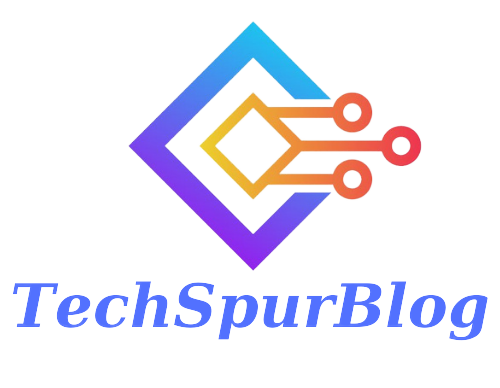Introduction
In today’s competitive job market, securing a dream position and achieving career advancement necessitates a multidimensional approach beyond academic qualifications. The debate between practical skills and academic qualifications continues to simmer. Employers seek individuals who bridge the gap between theory and practice. While academic foundations are essential, mastering real-world skills through practical experience is what will make you a standout candidate.
This blog post delves into the importance of each aspect and emphasises achieving the right balance to facilitate career growth.
What are Practical Skills?
Practical skills are the bridge that connects theoretical knowledge to impactful results. You can acquire these skills through hands-on practice, keen observation, and real-world application, making you invaluable assets in any professional landscape.
Also Read: 99math: Revolutionizing Mathematics Education
What are Academic Qualifications?
Academic qualifications represent the formal knowledge and credentials acquired through universities, colleges, and vocational institutions, providing a strong foundation for future professional endeavours. Degrees, diplomas, and certificates serve as tangible testaments to formal education.
The Value of Practical Skills
Adaptability and Problem-Solving
Practical skills enhance adaptability, problem-solving abilities, and ability to tackle challenges, positioning you as a valuable asset in the modern workplace. Practical skills ensure you’re not merely adapting, but flourishing in this dynamic environment.
Hands-On Experience
Practical skills are acquired Through hands-on experience and you gain invaluable firsthand insights and a deep understanding of your field. This learning journey enhances your understanding of your field and equips you with the necessary knowledge to effectively navigate complex situations.
Innovation and Creativity
Practical skills encourage you to think creatively and innovate, pushing you to explore fresh ideas and solutions. Utilising your practical skills can lead to innovative solutions to complex issues, accelerating your personal growth and boosting your team’s performance.
The Benefits of Academic Qualifications
Foundation of Knowledge
Getting academic qualifications gives you a strong base of knowledge and theories in your field. This foundation helps you learn more and specialise later on, so you can keep growing in your career. Moreover, it opens doors to opportunities for continuous learning and advancement, facilitating your ongoing development and success in your chosen field.
Credibility and Validation
Academic qualifications enhance credibility and validation in the eyes of employers, colleagues, and clients. A recognised degree or certification signifies rigorous training and academic standards, boosting confidence in your abilities and expertise.
Networking Opportunities
Academic institutions are vibrant hubs to launch your career! Here, you can connect with like-minded peers, find inspiring mentors, and even chat with industry experts. It unlocks doors to awesome job opportunities, keeps you updated on the latest industry trends, and gives you that extra edge to stand out from the crowd.
Also Read: Gu iCloud: Transforming Education, Empowering Institutions
Challenges while striking the balance between Practical Skills and Academic Qualifications
Overemphasis on Credentials
Overemphasis on formal credentials by employers and the industry can hinder career growth, potentially ignoring valuable experience and untapped potential. While academic qualifications are undoubtedly important, placing too much emphasis on them can overlook the value of practical skills and real-world experience.
Bias in Hiring Practices
Bias in hiring practices presents another obstacle for you in seeking career advancement, whether unconscious or evident, can hinder opportunities for you due to factors such as gender, age, or qualifications.
Resource Constraints
Limited access to educational and professional development resources can create substantial barriers to career advancement. From financial limitations to time pressures and geographic isolation, various factors can hinder access to resources that accelerate skill development and qualification acquisition.
Strategies for Balancing Practical Skills and Academic Qualifications
Professional Development Programs
Professional development programs provide structured opportunities to enhance skills, knowledge, and competencies relevant to your field or industry. These programs might involve workshops, online courses, certifications, or training sessions supported by your employer.
Professional development programs are crucial for staying updated with industry trends, and acquiring new skills. It shows that you’re dedicated to continually learning and evolving. This puts you in a great spot to seize career advancement chances when they come knocking.
Mentorship and Networking
Mentorship and networking play crucial roles in career advancement by providing guidance, support, and access to valuable professional connections. Mentors give you guidance and support, sharing their wisdom from their journeys to help you tackle obstacles, set goals, and make smart choices.
Networking allows you to expand your professional circle, build relationships with industry peers and influencers, and uncover hidden job opportunities. By diving into mentorship and networking, you can get noticed, earn trust, and unlock fresh career paths.
Leveraging Hybrid Models
Hybrid models of career advancement involve combining elements of both practical skills and academic qualifications to maximise professional growth and success. This method acknowledges the interplay between hands-on experience and formal education, recognizing their mutual value in achieving career goals.
You might be pursuing academic credentials while also preparing for internships, co-op gigs, or project work. A hybrid approach enhances your skills, making you a more appealing candidate and better prepared to adapt to job market changes.
Also Read: Blooket Login: A Fun and Engaging Learning Experience
Conclusion
Striking the correct balance between real-world experience and academic credentials is crucial for career advancement and success in the modern workforce. Using your academic qualifications and professional experience can help you become a versatile individual who can excel in any work setting.
The focus should be on combining practical skills and academic qualifications to reach your full potential and elevate your career. So, take the initiative to assess your strengths, set clear goals, and pursue opportunities for growth and advancement. With the right balance, you’ll be well-equipped to navigate the challenges and opportunities that lie ahead in your career journey.

We are a team of enthusiastic people who want to share our experience, knowledge and enterprise with the world. We love what we do and we hope you will too!. We pride ourselves on being the global leader in developing Techspurblog as a technology blog, which can create original content.






